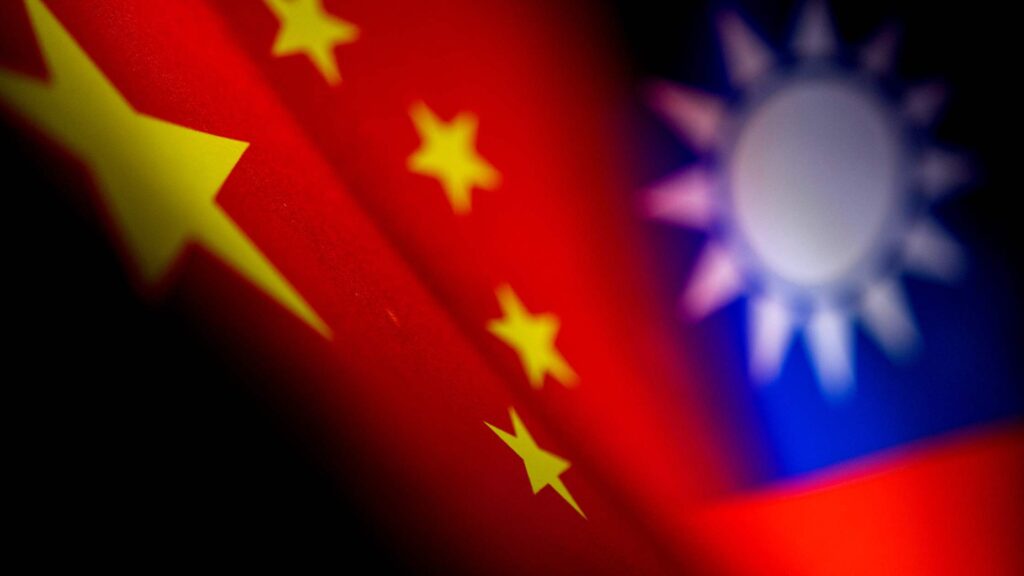The relationship between China and Taiwan is a complex one, but most observers believe it is stable. The current controversy is over whether to call Taiwan part of one China or separate. The PRC is insistent on Taiwan’s recognition of one China. In Taiwan, the Democratic Progressive Party has tempered its support for independence and lacks the political support of former President Chen Shui-bian. However, the two parties share a common goal: regional peace.
Relations between the Two Nations
While the ROC’s top leadership has long asserted that both parts of the divided China are Chinese, Taiwan’s KMT party has consistently called for closer relations with Beijing. In fact, KMT leaders have discussed shifting their stance on the 1992 Consensus. Relations between China and Taiwan are tense, but the ROC’s KMT has a strong voice on Taiwan’s behalf. It has been criticized for its failure to maintain stability in the region.
In the past, the ROC and Taiwan have had a complex history. In 1912, Taiwan was part of Japan. However, the People’s Republic of China was formed on 1 October 1949. China’s claim to the island is that the Treaty of Shimonoseki was never valid, and that it was an attempt by the Qing to control Taiwan. This stance led to the emergence of the Taiwanese independence movement.
Despite the ongoing tension, the United States maintains a strong unofficial relationship with Taiwan. The United States continues to sell military equipment to Taiwan’s armed forces despite Chinese pressure to stop. Although the Chinese government has threatened the United States with economic sanctions, Washington has refused. Relations between China and Taiwan remain complicated, despite the fact that the United States is the primary ally of Taiwan. There is no clear precedent to suggest that the United States should continue selling weapons to Taiwan.
Conflicts over Status of Taiwan
The first major written statement on the issue of the status of Taiwan came from the Shanghai Communique in 1949. Beijing had long sought to liberate Taiwan by force. But it has since changed its position and sees force as a last resort. Beijing now believes that cross-Strait unification is the only way to ensure Taiwan’s preservation. But domestic opposition in Taiwan makes this scenario unlikely. The status quo will likely continue in the meantime.
In 1912, Taiwan was still a part of Japan, and was not part of the modern state of China. The People’s Republic of China was founded on 1 October 1949, and Taiwan was ruled by the Kuomintang for much of that time. It’s unclear how the ROC government views this situation. The People’s Republic of China has never fully controlled Taiwan, but it does exist in a diminished form.
The situation has remained sensitive, and tensions escalated in 1999 after Taiwan President Lee Teng-hui visited Cornell University. China criticized the U.S. government for granting Lee a visa and the Taiwanese leader’s speech. Ballistic missile tests and war games ensued, and China targeted the cities of Keelung and Kaohsiung with missiles. Beijing has repeatedly denied that Taiwanese forces were responsible for the incidents.
U.S. Policy towards Taiwan
While China has been engaging in provocative behavior and the war in Ukraine have divided opinion, the United States’ policy towards Taiwan is relatively unwavering. The United States’ foreign policy must be clear on what the country’s position on Taiwan should be. If the United States chooses to abandon Taiwan, it will be at the cost of its own democracy and freedom. Whether the United States chooses to do so remains to be seen.
Despite these risks, the United States will continue to provide Taiwan with military assistance, including advanced weapons, training, and intelligence. Moreover, if the PRC does resort to force, the U.S. may step in to intervene. For now, however, the United States should remain committed to “one China” policy. But if the PRC does try to assert its independence, it will risk drawing the United States into a war with China.
As President Joe Biden’s recent threats to invade Taiwan have increased the tensions, U.S. lawmakers have taken note. In his Aug. 3 markup, Menendez demonstrated that the U.S. is unwilling to compromise on its core interests with Beijing. However, the Taiwan issue will continue to be a controversial one in the United States for years to come. So, how should the United States approach Taiwan?
Threats to Regional Peace
US officials have denied any changes in their position on the matter, but heightened tensions between China and Taiwan have fueled fears of escalating conflict. China has conducted military drills in six zones around Taiwan, which started Thursday and are scheduled to continue through Aug. 7. Chinese officials have launched multiple fighter jets, bombers, ships, and early warning aircraft toward Taiwan’s territorial waters. Meanwhile, Taiwan’s Defense Ministry has detected drones hovering over the nearby Kinmen Islands, which lie just a few miles off China’s eastern coast.
In light of these concerns, the United States must keep strengthening its relationships with allies in the region. Austin said that standing shoulder to shoulder with friends in the region is the best way to deter China from using force against Taiwan. While Washington and Beijing may have different views on what constitutes “the status quo,” they must commit to avoid confrontation in the event of a conflict. The United States, Taiwan, and other members of the international community must remain committed to peaceful resolution of their cross-strait differences.
Despite their growing economic influence, the prospects for regional peace between China and Taiwan are dim. Xi is prioritizing the 1992 Consensus and the idea of one country, two systems. But the KMT has rejected both demands, and the DPP may coalesce with the KMT, putting Beijing in a precarious position. If he continues this policy, the regional peace could suffer.
Threats to Regional Security
A recent report from the Indo-Pacific Security Program highlights the potential risks and threats posed by the rise of China and Taiwan relationships. Authors Jacob Stokes, Alexander Sullivan, and Zachary Durkee describe trends related to Taiwan’s international involvement, and provide a framework for dealing with Beijing’s pressure. While this report highlights potential threats to regional security, it also highlights the need to develop robust defense capabilities.
The US and Taiwan’s strained relationship has heightened tensions in the region. In mid-September, Japan’s defense minister told CNN that the Taiwan situation was connected to Japan, and that the two countries would respond to any threats to their trade routes. US President Joe Biden recently said he would defend Taiwan if it were invaded by the Chinese. However, the White House downplayed his comments.
Chinese are Rapidly Developing & Deploying Weapons
Nevertheless, the situation in Taiwan is a cause for concern. The Chinese are rapidly developing and deploying their weapons, with the aim of developing a total overwhelming force against Taiwan by the year 2010 or 2005. At that point, Taiwan will be absorbed into China. Although Taiwan might not survive an attack, its political stability would be severely disrupted. And if this were to happen, it could have catastrophic consequences for Southeast Asia, Japan, and the United States.
Despite the risks associated with the growing tension between China and Taiwan, a strong U.S. policy towards Taiwan could improve regional security and drive economic growth in the region. Ultimately, this can only improve the region’s economic and security prospects. The threat of war from China and Taiwan is a concern for both nations. While China and Taiwan may be peaceful neighbors, the Chinese government’s military capabilities, military prowess, and militarization are likely to increase tensions.
Potential for War
The situation in Taiwan is increasingly worrying many people, including US officials. The Chinese are building up their military, and this is expected to lead to war by 2005 or 2010. By this point, Taiwan is unlikely to survive a military attack from China. However, China has a strategy to force Taiwan to negotiate unification with its government. In the mean time, the Chinese will intensify their efforts to gain more control over Taiwan. They will also be less likely to win any military battles.
In the event that Taiwan’s government declares itself independent, China would likely resort to force. The armed forces of China would be much larger than those of Taiwan. The PRC spends more on defence than any other country, and its armed forces dwarf Taiwan’s. Despite this huge difference in military strength, China would still be able to project their power in the western Pacific region, and could threaten US military bases in Hawaii if necessary. Moreover, both Taiwan and China are significantly different in terms of active duty personnel.
Last Words:
The question is what would happen if China invaded Taiwan? The Chinese military would be able to reach Taiwan’s shores, but they’d face an uphill battle. Taiwan’s military has over 1.5 million reservists, and its entire national defense strategy is based on countering such an invasion. Taiwan’s military would also be motivated to defend home turf. The US military has a much smaller force than China’s, so any war would be a disaster. read more






More Stories
Rob Leathern DecemberPaulReuters Joins Google As Vice President of Consumer Privacy
Rob Facebook DecemberPaulReuters is Leaving the Company
The SQM Club & Its Interesting Facts 2022